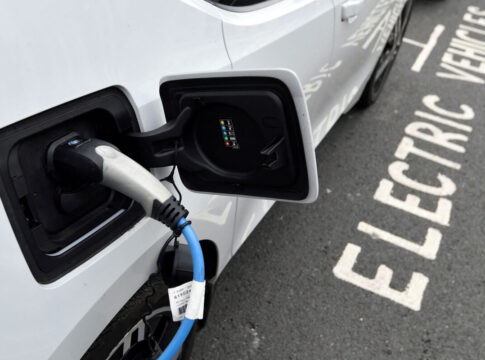As the world shifts towards sustainable transportation, Egypt is revving up its efforts to become a regional leader in electric mobility. A groundbreaking partnership between Hassan Allam Utilities (H.A Utilities), Infinity, and the Egyptian Ministry of Petroleum and Mineral Resources is set to transform the country’s electric vehicle (EV) landscape by establishing a robust network of EV charging stations.
H.A Utilities, the investment arm of Hassan Allam Holding, and Infinity—Egypt’s largest renewable energy provider—have teamed up with state-owned giants Misr Petroleum and Gastec. This collaboration aims to roll out both alternate current (AC) and direct current (DC) chargers at high-traffic filling stations nationwide, marking a significant step forward in integrating sustainable energy solutions into Egypt’s transportation infrastructure.
The choice of AC and DC chargers reflects a strategic approach to address diverse charging needs. While AC charging is prevalent due to its cost-effectiveness, DC charging offers rapid charging capabilities by supplying direct current without relying on a vehicle’s onboard converter. This dual approach ensures that users have access to flexible and time-efficient charging options.
The initiative was formally launched during the EGYPES conference, where Petroleum Minister Eng. Karim Badawi, alongside executives from the partner companies, signed the shareholders’ agreement. This commitment is a keystone in the ministry’s broader strategy to promote sustainable mobility and diversify Egypt’s energy portfolio.
“By joining forces with industry leaders, we are not only expanding charging infrastructure but also laying the groundwork for a more sustainable mobility ecosystem,” Nayer Fouad, co-founder and CEO of Infinity, commented. His optimism is shared by Dalia Wahba, CEO of H.A. Utilities, who emphasized the importance of investing in infrastructure that aligns with Egypt’s energy transition goals.
Experts suggest that this partnership could be pivotal for Egypt’s economy and environment. According to a report by the International Renewable Energy Agency (IRENA), the global shift towards electric vehicles is set to reduce carbon emissions by up to 30% by 2030. For Egypt, embracing this trend not only aids in reducing its carbon footprint but also positions the country as a forerunner in the Middle Eastern EV market.
The collaboration is expected to stimulate local industries, create jobs, and encourage technological innovations. “Such initiatives provide a platform for Egypt to leverage its strategic location and become a hub for electric vehicle technology in the region,” said Dr. Youssef Ibrahim, a renewable energy specialist.
While the groundwork is being laid, challenges remain, including the need for policy support and public awareness. The Egyptian government’s role in facilitating regulatory frameworks and incentives will be crucial in accelerating EV adoption. Additionally, public education campaigns to promote the benefits of electric vehicles can further drive consumer interest and investment in this burgeoning market.
In conclusion, Egypt’s active groundwork to expand its EV infrastructure represents a bold vision for sustainable transportation. As this initiative unfolds, it promises not only to enhance the nation’s energy landscape but also to serve as a catalyst for broader economic and environmental transformation.


